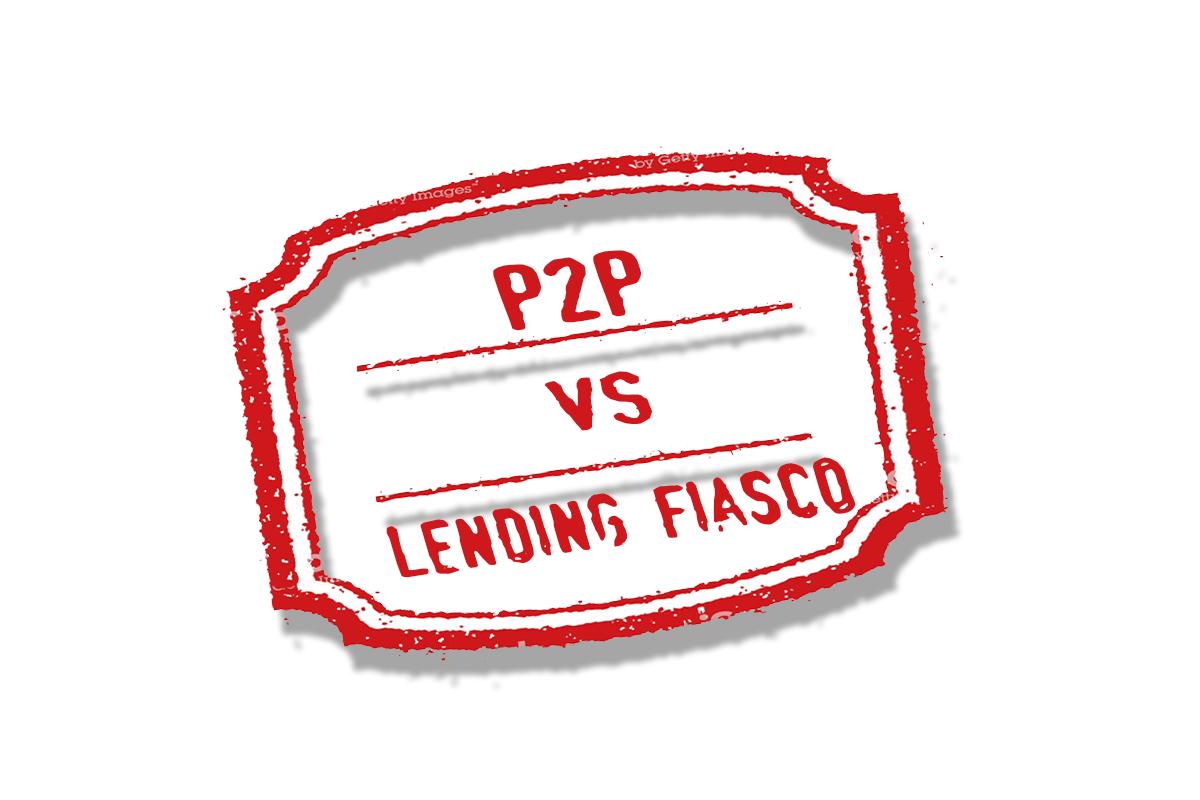P2P companies and the online lending fiasco

P2P companies and the online lending fiasco
In the financial space, primary avenues such as bank deposits, mutual funds, and direct investments in bonds have reigned supreme for centuries. More recently however, new avenues such as peer-to-peer or person-to-person (P2P) lending and non-banking finance companies have emerged. Lending and borrowing money that used to be done in an unorganized manner can now be carried out with the proper paper trail, complete with all the bells and whistles that were only usually available through the conventional channels.
What is P2P lending?
P2P lending allows people to borrow money from other individuals through platforms that facilitate such transactions. This method eliminates the need for a financial institution since borrowing is usually done online. It is ideal for borrowers looking for alternatives to banks or for those looking for better rates and more flexible loan arrangements.
What is an online lending company?
Generally speaking, lending can cover any platform that offers loans other than the traditional banks. They can also include credit unions, government loans, and other similarly structured credit institutions. Online lending companies, meanwhile, involve those who carry out these transactions online. In the Philippines, online lending is usually a catch-all term for internet-based companies that allow people to avail of loans but wouldn’t fit in the old-school way of lending money.
What makes a P2P marketplace different from online lending companies?
For online lending, you borrow a sum of money at a set interest rate over a set period of time from an online company. This company will look at your individual circumstances and approve your application if you pass their criteria. They will then take money from their own pool of funds and then release it to your name.
In P2P borrowing, the model is quite similar, except for the part where the company releases its own funds. In P2P, you have to wait for a lender who’s willing to finance your loan application in order to get the funds you need. This means you’re owing money from an individual, and not with the company where you applied for the loan.
Not all P2P platforms can be classified as online lending in the strictest sense. Blend PH, for instance, has an investment component, which aims to free borrowers from the shackles of outrageous interest rates and payment terms most online lending companies gear towards. Blend PH is part of the online lending market, but it might be too limiting to say that it only qualifies under this umbrella.
While yes, a P2P platform can fall under the category of online lending due to similarities in the model, but when you add an investment component to it, it becomes a completely different ballgame.

The online lending fiasco
Recently, some online lending platforms got embroiled in a widely reported crackdown by the Securities and Exchange Commission (SEC) because of “complaints against high interest rates, unreasonable terms and conditions, misrepresentations, violations of right to privacy, harassment, and other collection purposes.”
The said companies were reportedly scamming and intimidating borrowers to force them to pay up in the event of unpaid loans.
As a result, SEC issued a memorandum that forces these companies to comply with the requirement of publishing text on their respective websites that would demonstrate transparency and compliance such as disclosing their trade name, SEC registration number, and authority to operate among other details.
Aside from evaluating companies to borrow money from, you need to exercise due diligence. To see the full and updated list of lending companies – online and offline – registered with the SEC and the interest rates they impose, visit the SEC website and navigate through this page.
Is Blend PH part of this SEC crackdown?
The short and straight answer? NO. Blend PH would never resort to illegal or shady lending practices. We will never violate your privacy or harass you in any way. We only encourage responsible borrowing and fair collection practices, nothing more and nothing less. You can read more about these terms and conditions for borrowers here.
We strive to ensure that your personal information is safe and well-protected. We’ll use the private details you’ve provided us responsibly. Since we collect information from you, we feel that it is important for us to disclose how we use this information. Please check out our Privacy Policy to get an understanding of how we do this.
A safe place for borrowing and lending money online
You might still be weighing your options when it comes to online loans, so here are a few tips that can hopefully assist you in coming up with a decision.
- Look for the complete contact details of the company you plan to transact with. A legitimate online finance company will display their physical address, phone number, and email address prominently on their website. For instance, the bottom left corner of every Blend PH page contains an office address, meaning it’s not operating on a fly-by-night basis. You can verify this address with a quick Google search or you can go to the actual location. We also display several phone numbers and an email address to make sure that all of our bases are covered.
- Research the technology offered by the lender. For example, you can check if they employ third-party verification apps for products or services. Third-party solutions offer a great way of making sure that security and privacy standards are met.
- Check who owns the website. There are many ways to do this. It can be as simple as performing a WHOIS check, which will tell you how old is the site and who manages it. You’ll get insight about how the company runs the site and if they’re really a trusted business.
- Read reviews from real users of the platform you want to borrow money from. While we’re not encouraging you to exclusively use reviews to form an opinion, it would be great practice to look around and see what people think. Make sure that you weed out the fake ones from the legitimate reviews. And always remember that people who are dissatisfied or are complaining are more likely to post scathing reviews more than those who are happy about a service.
The most valuable part of this online revolution is that people are able to access more options. Online lending, whether done through a P2P marketplace like Blend PH or through a platform purely focused on loans, should be ethical. The way client information is handled can make or break a company, because people only want to do business with those who encourage responsible practices.
